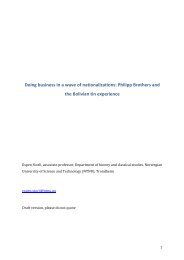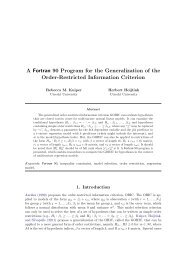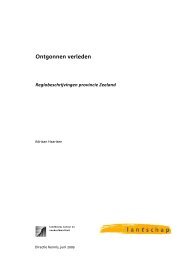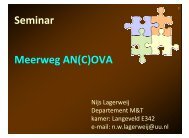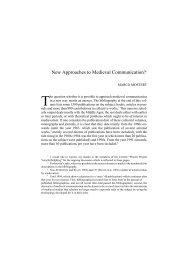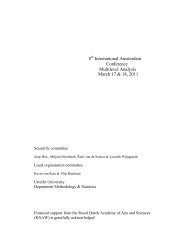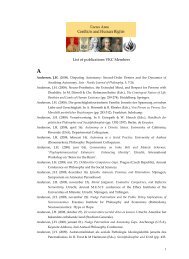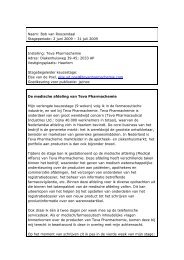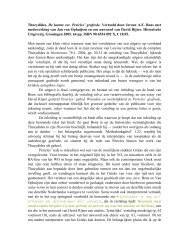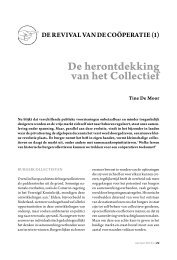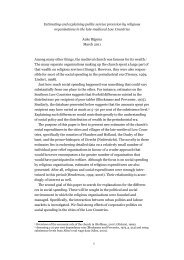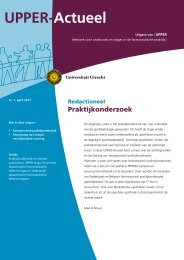CH8.Ewout Frankema.education.pdf
CH8.Ewout Frankema.education.pdf
CH8.Ewout Frankema.education.pdf
- No tags were found...
Create successful ePaper yourself
Turn your PDF publications into a flip-book with our unique Google optimized e-Paper software.
Reybrouck, 2010: pp. 278-280). The Congolese delegation was advised by severalBelgian’s who had a much higher <strong>education</strong> than the delegates themselves. TheCongolese held jobs as accountant, clerk, journalist, school teacher or tradesmen. Onlya few of them held positions with the type of responsibilities that require an accurateoverview of overarching national political and economic interests. Naivety was also themajor reason why the Congolese transition government agreed with the Belgiangovernment to dissolve the Comité Spécial du Katanga, which formally left the newCongolese state with just a minority share in the Union Minière, the biggest miningcooperation in the country (van Reybrouck, 2010: p. 279).Just about the time when Mobutu conquered the stage in the Congo to stay in power formore than three decades (1965-1997), Suharto, the army general, displaced Sukarno.Suharto stayed in power for a similar period (1967-1998). Suharto and Mobutu rankamong the most cruel and conscienceless dictators of the 20 th century. They have beenresponsible for mass murders and their appetite for self-enrichment has becomelegendary. Their methods were similar: by monopolizing the most profitable industriesof the country (copper, oil) they managed to become the wealthiest person in no time.Both dictators controlled power by combining an extensive system of politicalpatronage, a firm control over the army and keeping up a credible threat of terror againstpolitical opponents. Both received support from the Western world (especially the US)for their outspoken anti-communism.However, the economic policies of Mobutu’s “Mobutuism” and Suharto’s “New Order”revealed sharp contrasts, not only in name. Suharto managed to combine rent extractionfor his personal clientele with an impressive record of macro-economic growth, fromwhich a vast majority of Indonesians eventually reaped the benefits. Few doubt that themacro-economic policies of Suharto’s government have positively contributed to thestructural transformation of the Indonesian economy and the rapid reduction of urbanand rural poverty rates (Booth, 1998; Hill, 2000; Dick et al., 2002; <strong>Frankema</strong> andLindblad, 2006; Thee, 2006; Warr, 2006). With the benefit of hindsight the start of theSuharto era in Indonesia can be regarded as a structural break with a period of recurrentinflation, increasing state debt, declining foreign exchange reserves and prolongedeconomic stagnation (Glassburner, 1971).Mobutu’s plans to develop the economy were marked by bright prospects in the firstyears, but failed miserably in the long run. Yet, fifteen years after the fall of Mobutu theCongolese are still waiting for the first signs of structural economic improvement.The success of Suharto’s economic program and the failure of Mobutu’s cannot be fullyexplained by just a personal difference in economic insight. Suharto assembled a teamof experts to get the economy back on track in a deliberate attempt to restore socialorder. These experts were capable of translating the New Order’s development trilogy“growth, stability and equity’ into a range of clearly defined objectives focusing on theachievement of self-sufficiency in food production (rice) and, subsequently, on anintensive program of industrialization based on Indonesia’s comparative advantages(labour abundance) (Thee, 2006). Suharto not only benefitted from the fact that thenecessary expertise of well trained economists was available but also, at a much broaderlevel, that there existed a class of entrepreneurs sufficiently equipped with the16



